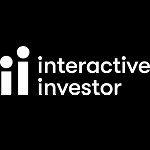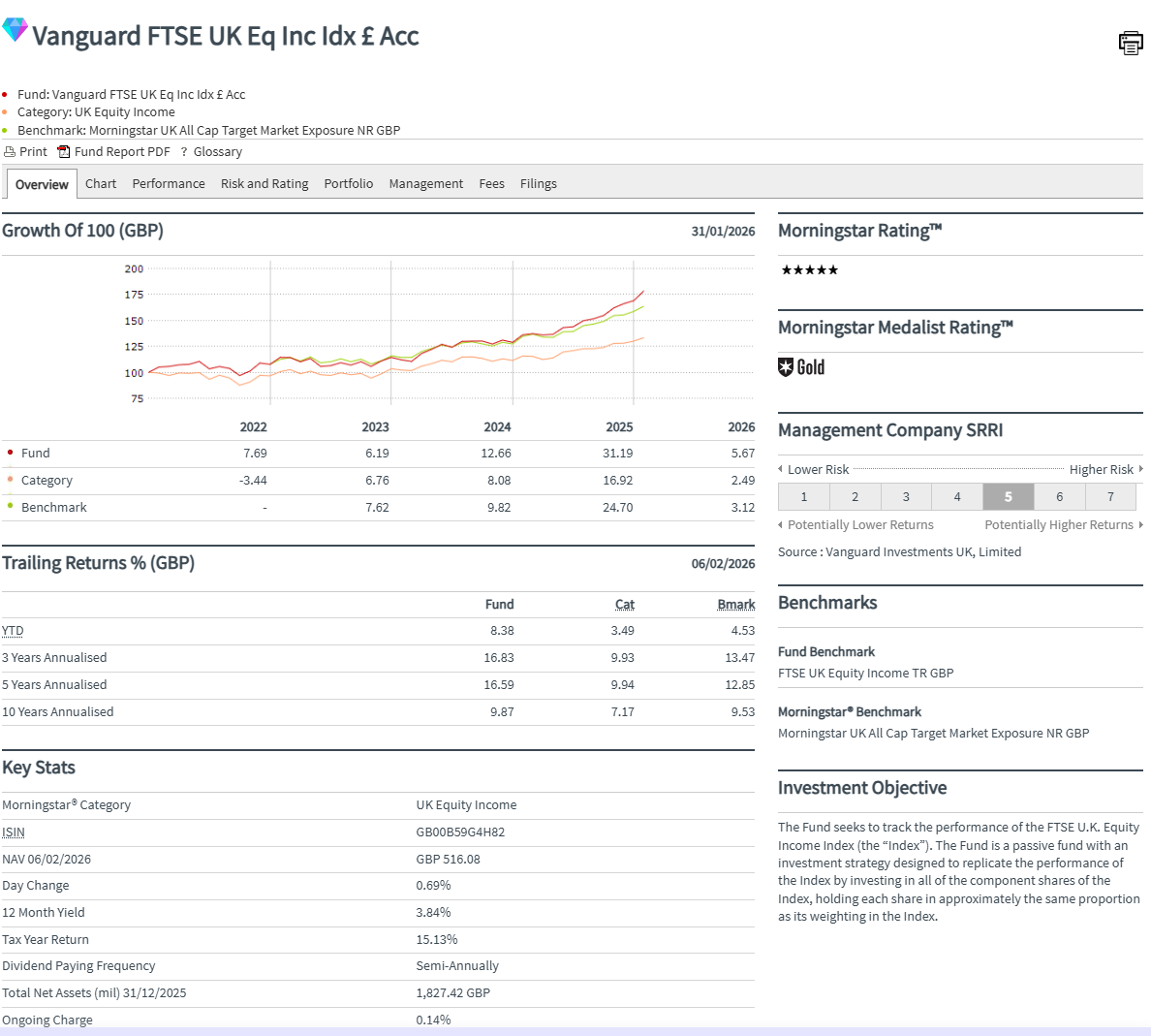-
 Richard Berry
Richard Berry
- Updated
To invest in an index fund you need an index fund platform account. In this guide, we will explain what an index fund is, how they work, how you can pick the best ones and highlight where you can buy them
Best Index Fund Platforms Compared & Reviewed
| Name | Logo | GMG Rating | Customer Reviews | Annual Fees | Dealing Fees | CTA | Feature | Expand |
|---|---|---|---|---|---|---|---|---|
|
GMG Rating |
Customer Reviews 4.2
(Based on 1,105 reviews)
|
Annual Fees 0.1% – 0.25% |
Dealing Fees £1.50 |
Start Investing Capital at risk |
Features:
|
AJ Bell: Best for low-cost index fund investing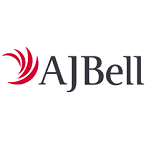 Provider: AJ Bell Index Fund Investing Verdict: AJ Bell have a wide range of index funds, and provide clients with free screeners and tools so they can find the most appropriate index to invest in through a fund. Summary A good choice for those who want to keep costs low, as fund account charges start as low as 0.25%. Fees: *Fund account fees reduce to 0.10% on the value between £250,000 and £500,000. There is no charge above £500,000. Dealing costs are £1.50. Pros
Cons
Overall4.1 |
||
|
GMG Rating |
Customer Reviews 3.8
(Based on 1,774 reviews)
|
Annual Fees 0.1% – 0.45% |
Dealing Fees £5.95 – £11.95 |
Start Investing Capital at risk |
Features:
|
Hargreaves Lansdown: Best online broker for UK index funds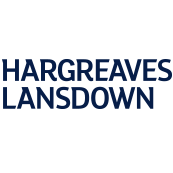 Provider: Hargreaves Lansdown Index Fund Investing Verdict: To make index fund investing easy Hargreaves Lansdown analysts have selected a number of index funds from across the major sectors for the Wealth Shortlist. Is Hargreaves Lansdown good for index funds? Yes, Hargreaves Lansdown has around 280 index funds in their screener (excluding ETFs). HL also have what they call a “Wealth Shortlist” where their experts have curated a best buy list of index funds across a broad range of sectors to help investors build a diverse portfolio. A good choice for those who want to include index funds as part of their overall portfolio. However, it can get expensive for large index fund portfolios. Fees: *There is no charge for buying and selling funds. Fund accounts are charged at 0.45% for the first £250,000. Then 0.25% up to £1m, 0.1% up to £2m. There is no charge above £2m. Pros
Cons
Overall4 |
||
|
GMG Rating |
Customer Reviews 4.3
(Based on 1,123 reviews)
|
Annual Fees £47.88 |
Dealing Fees £3.99 |
Start Investing Capital at risk |
Features:
|
Interactive Investor: Fixed-fee index fund investing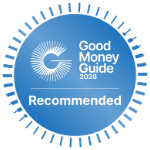 Provider: Interactive Investor Index Fund Investing Review Verdict: Interactive Investor offer a wide range of index tracker funds. A good choice for large index fund portfolios, as they offer good coverage and the fixed-fee model means that the bigger your account size gets, your costs stay the same. You can either pick your own or choose from some featured funds from their Super 60 investment list. Summary
Pricing: For the Core accounts a commission of £3.99 per trade is charged on index funds; however, if you are on the £39.99 a month Premium plan, index fund traders are free. Market Access: Great global market access to index funds, Platform & Apps: Clear-to-use website, and simple apps – nothing too complicated for DIY index fund investors. Customer Service: Very good, you can call their UK office for any issues. Not just be relegated to a chatbot. Research & Analysis: Excellent index fund screeners that show funds by yield and performance. Although it is a bit irritating having to score horizontally to get all the info. Plus lots of fund data from Morningstar.
Pros
Cons
Overall4.6 |
We have chosen what we think are the best index fund accounts based on:
- over 30,000 votes and reviews in our annual awards
- our own experiences testing the open-ended investment fund accounts with real money
- an in-depth comparison of the features that make them stand out compared to alternative open-ended investment fund accounts.
- interviews with the open-ended investment fund account CEOs and senior management
What is an index fund?
Index Funds track underlying markets and provide investors with a low-cost way to invest in a larger group of shares in one trade
An index fund is a type of investment fund that tracks the performance of a specific market index, such as the FTSE 100 or S&P 500, by holding the same mix of shares as that index.
In the UK, beginners can invest in index funds through online investment platforms or brokers like Hargreaves Lansdown, Vanguard, or AJ Bell by opening an ISA, SIPP, or general investment account and choosing a suitable fund.
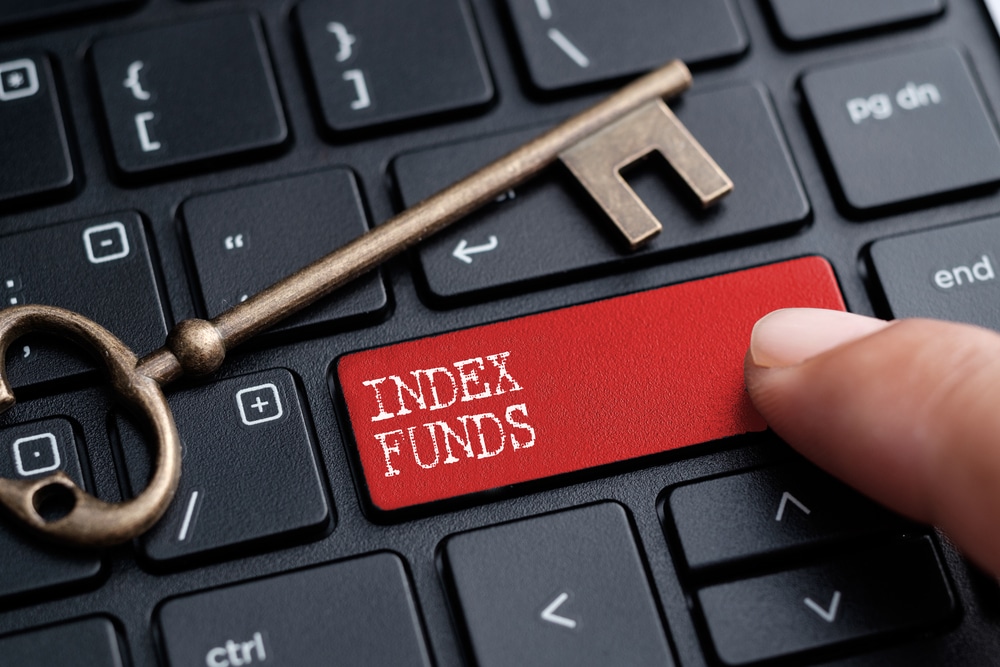
What are the best index funds?
The best index fund depends on your goals, but popular low-cost options include the Vanguard FTSE Global All Cap Index Fund and iShares Core S&P 500 ETF. If you invested £1,000 in the S&P 500 ten years ago, it would now be worth roughly £3,000 – £3,500 depending on dividends and exchange rates. Investing £500 a month for 10 years, assuming a 7% annual return, could grow to around £86,000.
Overall, index funds are a simple, diversified, and cost-effective way for beginners to invest for the long term.
How do index funds work?
The rise of passively managed investment funds has been the standout story of the last 25 years in the fund business.
Estimates differ, but as much as 30% of the money managed by funds globally is now believed to be invested passively in one way or another.
The two most common types are (a) index funds and (b) exchange-traded funds (known as ETFs).
The traditional way to manage an investment fund is for a qualified professional manager to choose a portfolio and monitor it on a daily basis, buying and selling individual securities on the basis of research and judgment, taking into account a range of factors, such as valuation, profitability, management competence and dividend potential.
In contrast passively managed funds use a computerized approach to portfolio management, aiming to replicate the performance of a market index or to construct a portfolio with a pre-determined set of investment criteria.
This is a simpler and much cheaper method that academic research has shown often works just as well as actively managed equivalents.
What is the difference between index funds and exchange-traded funds?
Index funds are open-ended funds which issue units in the traditional way, directly to investors in response to investor supply and demand. They are typically valued and units issued or redeemed once a day.
Exchange-traded funds, in contrast, often have similar objectives but can be traded continuously like shares during market hours, with the portfolio being managed by investment banks and brokers rather than by a fund management company.
Another popular type of ETF are so-called “smart beta” funds which put together collections of securities that meet specified characteristics, such as a high dividend yield, low volatility or strong momentum.
What makes a good index fund?
Two qualities in particular are essential – low costs and low tracking error. You should expect a FTSE 100 index fund, for example, to mirror the performance of the FTSE 100 index very closely.
That after all is its purpose. In order to do that, as well as tracking efficiently, the fund will need to have very low charges – in general, the lower the better. The running costs of an index fund are much lower than those of a fund run by a human and competition to provide index funds has become very fierce in recent years.
Some tracker funds and ETFs charge as little as ten basis points as a management fee (in other words, the fee is equivalent to 0.1% or less of the value of your investment, compared to 1.0%-2.0% per annum for an actively managed fund).
What kind of performance should you expect from an index fund?
The whole point of an index fund is to provide you with the same return as whichever market, sector or type of investment you wish to own. The more mainstream the market, the more likely it is that you will be able to find a tracker fund that does what you want. For index funds that track leading developed market indices, the evidence is that the average index fund will produce reliable second quartile performance – that is to say, not among the very best performers in any one year, but normally ranked in the top 25% to 50% of comparable funds over longer periods.
The reason indexing has become so popular is the evidence that only a small minority of actively managed funds are capable of bearing their benchmarks consistently over periods of five years or more. Funds that do well in one year tend not to repeat the outperformance in future years. Persistence of outperformance, in other words, is poor. You have to be either skilled or lucky as an investor to pick the ones that do outperform consistently over longer periods. When taken together with their much lower costs, the reliable second quartile returns from an index fund make them an attractive practical alternative.
The Financial Conduct Authority, the City regulator, has published a number of studies emphasising the advantages of indexing as a strategy, based on academic research. Remember though that an index fund is only a means to an end; how well your portfolio does will depend on its composition – how much you have in equities, fixed income, commodities, property, gold and so on. That decision remains down to you, or your financial adviser if you have one.
Are there index funds for all kinds of investment?
No. There are very few index funds that aim to track the performance of smaller companies and many emerging markets, for example, because dealing costs are too high and many securities are too illiquid to be traded cost-effectively. Index funds work best when they are competing against actively managed funds in liquid mainstream markets and sectors. They are useful as building blocks in a portfolio. This is where competition and transparency are most apparent. There is a broader range of ETFs; while most invest in indices, like index funds, ETFs also invest in commodities, currencies and certain investment styles and characteristics, such as volatility and momentum.
Are index funds rated?
Yes. For many years most brokers and platforms preferred to ignore index funds and ETFs, in part because they were less profitable to provide. However the increasing popularity of indexing as a strategy and the emergence of ETFs has forced research providers of all kinds to start rating passive funds as well, or in the case of platforms to put them on best buy lists. FE Trustnet for example rates 250 passive funds (both index funds and ETFs), noting that while passive funds are designed to replicate an index, “some prove much better at doing so than others”. Hargreaves Lansdown has 10 tracker funds on its Wealth 50 list of favoured funds.
Another way to screen index funds and ETFs is to look at the model portfolios which are now offered by many wealth management firms and platforms. Many of these use passive funds because they are cheap and easy to trade. Here is one of many possible examples you might look to for leads: Interactive Investor’s low cost growth portfolio. (Note that if you ask the firm to manage this portfolio for you, it will cost you additional fees; this is not a recommendation, just an illustration).
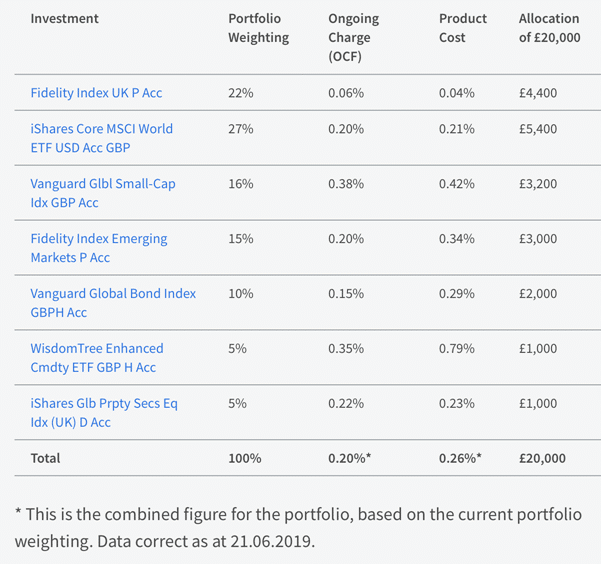
Source: Interactive Investor.
Which index funds are most popular?
It is not easy to find reliable figures on the best selling index funds. The market is however dominated by a small number of firms which are large enough to benefit from the economies of scale available from running the biggest funds. The biggest UK sellers include Blackrock, Legal & General, Fidelity and Vanguard. Index funds now account for roughly 15% of all open-ended funds sold in the UK. Their market share has doubled in the last 10 years.
Most of their sales are concentrated in funds that track mainstream UK, US and overseas market indices. The same is broadly true of ETFs, judging by the best sellers on specific platforms (examples: clients of Hargreaves Lansdown and Barclays’ Smart Investor service). Notable providers in Europe include Blackrock (which owns iShares), Vanguard, Fidelity and Lyxor.
What is the secret to using index funds?
If you understand their strengths and limitations, passive funds are a simple and cost-effective way to construct a diversified portfolio that meets your objectives and tolerance for risk. Their growing popularity in recent years illustrates how investors have become more aware of the limits of actively managed funds and the importance of minimizing costs to maximize returns. ETFs give you additional options for adding commodities, currencies and specific investment factors to your portfolio, but also carry additional risks: make sure you understand how they work before investing in one.
⚠️ FCA Regulation
All index fund platforms that operate in the UK must be regulated by the FCA. The FCA is the Financial Conduct Authority and is responsible for ensuring that UK index fund brokers are properly capitalised, treat customers fairly and have sufficient compliance systems in place. We only feature index fund investing accounts that are regulated by the FCA, where your funds are protected by the FSCS.


